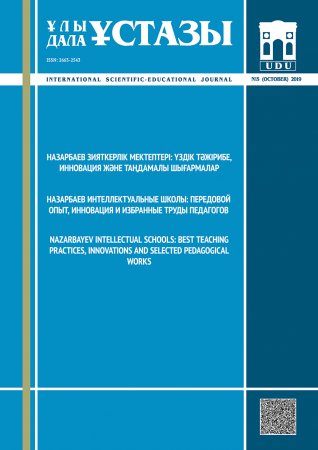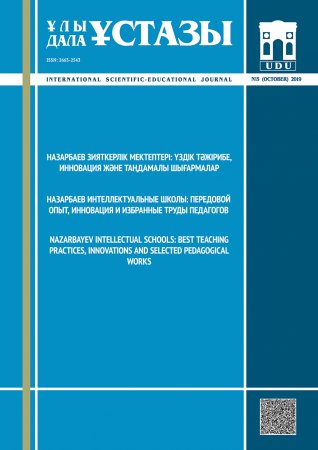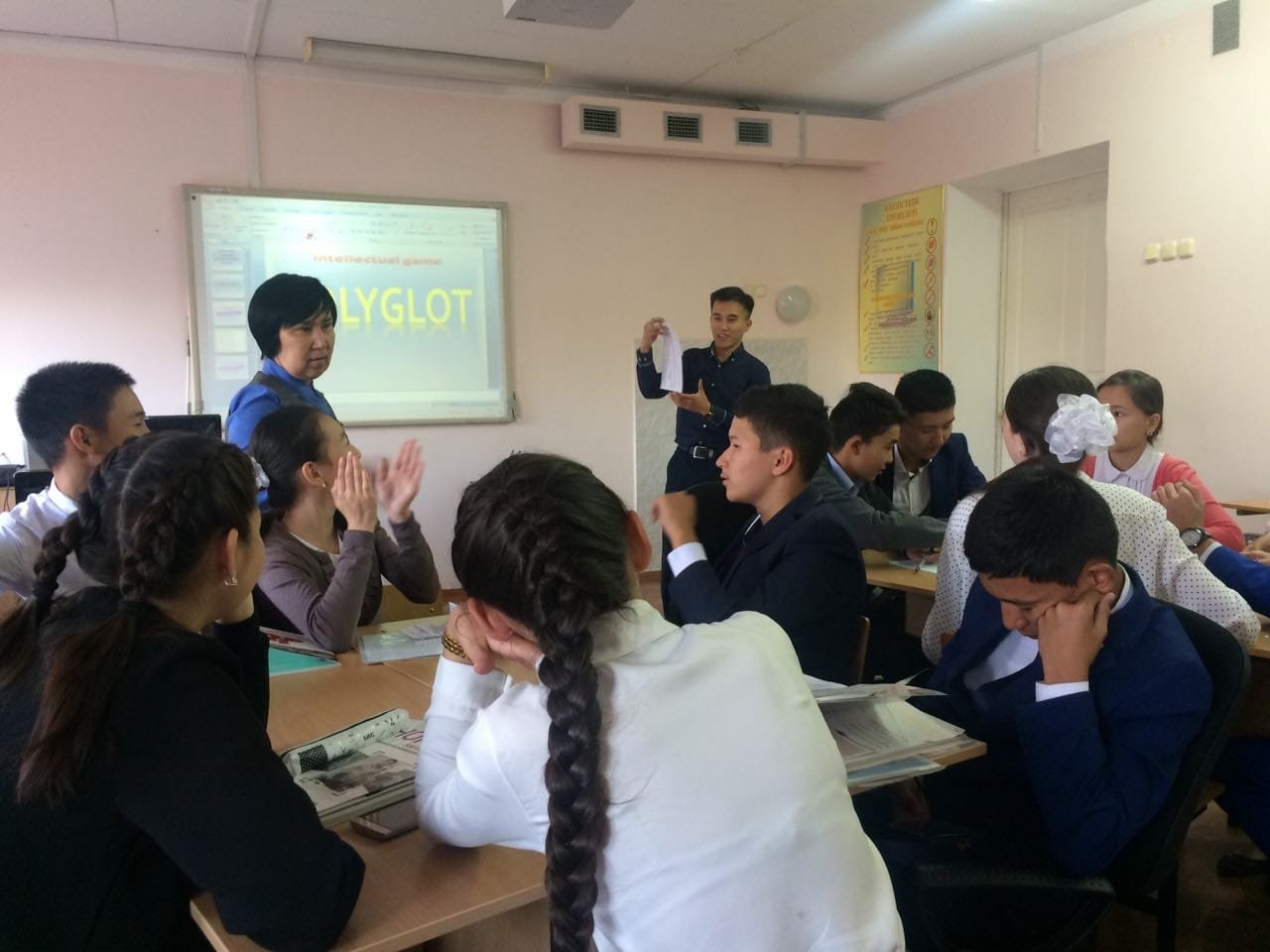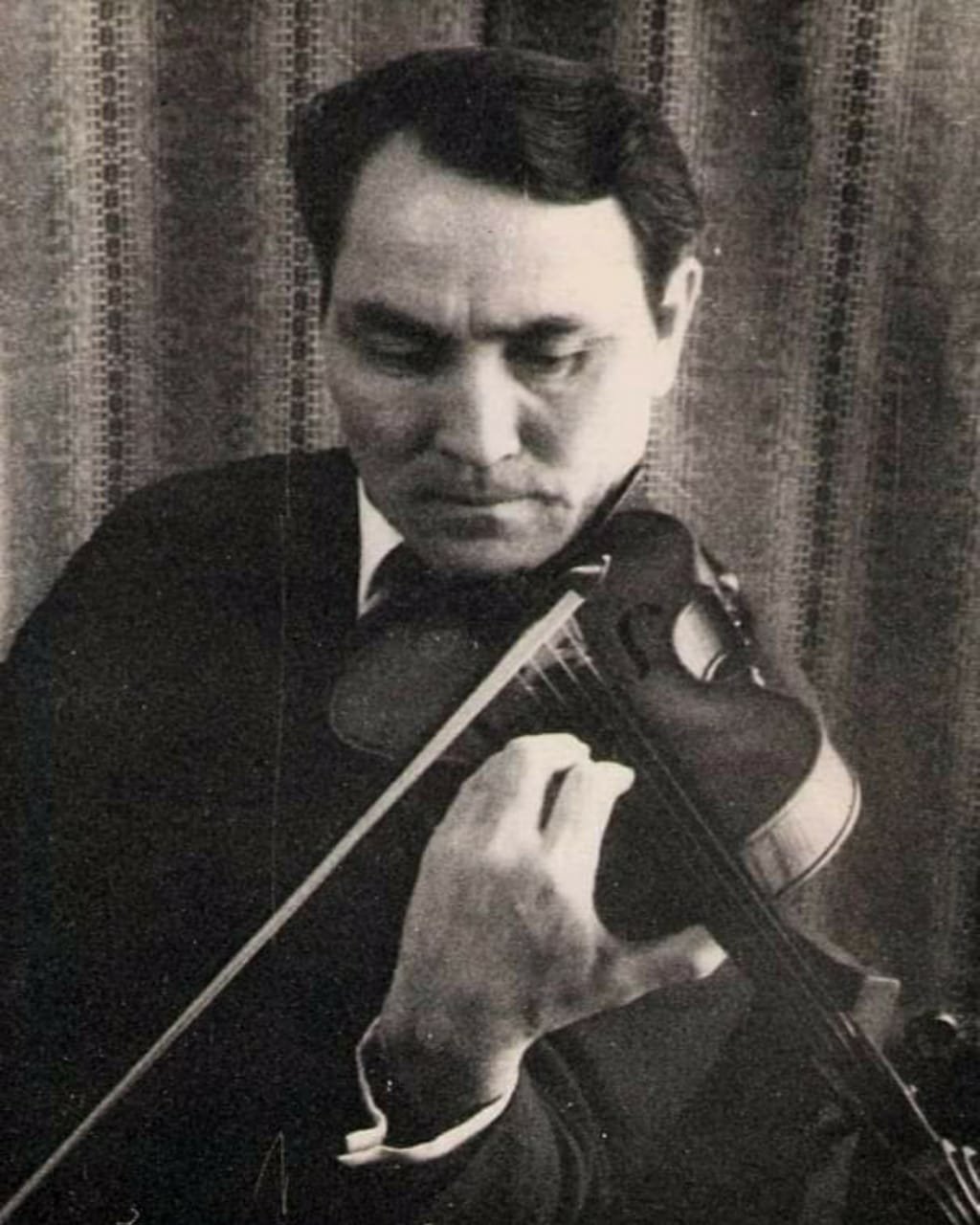INTERJECTIONS AS A MEANS OF EXPRESSING AN ESTIMATED RELATION
 INTERJECTIONS AS A MEANS OF EXPRESSING AN ESTIMATED RELATION
INTERJECTIONS AS A MEANS OF EXPRESSING AN ESTIMATED RELATION
Abstract. This article deals with the analysis of pragmatic cause in exclamatory sentences with the means of appreciating subjective characteristics in positive and negative meaning.
Keywords: lingvorogmatics, exclamatory sentences, value, positive and negative meaning.
As we know, the last quarter of the twentieth century was the time of new linguistic trends in linguistics. One of the new linguistic dimensions that emerged during this period was linguopragmatics, where serious attention was paid to the study of external factors such as the attitude of the linguist to the object of speech, the communication environment, the general knowledge and skills of the linguists.
One of the most urgent issues in the 21st century is the rapidly expanding linguistic pragmatism, to identify common and differentiated linguistic factors, such as the communicative nature of the communicants, their relationship to the outside world, their knowledge of the speech object, the communication situation, the context. is a problem. These pragmatic units of the language level include the Uzbek and English words. One of the major problems of cross linguistics is the determination of the common pragmatic features of these units, and their comparative study of comparative aspects.
It is well known that words are expressions that express the emotional experiences and commands of the linguists. Language expressions also reflect emotional responses to reality when expressing emotional experiences. In this case, the speech activity depends on the communicative purpose and desire of the language owner. The fact that words and expressions in speech activities express the intent and desire of the speakers is that they are the object of linguistic research.
Different pragmatic functions emerge in the communication environment. These words also act pragmatically when expressing the subjective attitude of the speaker. Commenting on the expression of modality in language, E.E. Cordy underscores the emotional assessment expressed through words and various vocabulary units as a particular type of modality. [E.E. Cordy, 1988, p. 13]
Indeed, the emotional assessment expressed by words of excitation refers to the category of subjective modality. When the speaker speaks the truth, he also expresses his personal attitude towards the reality in the process of expressing his feelings. As a result, the subject matter information is subjective. Such a valuation relationship, expressed in words, is a pragmatic aspect.
In Uzbek and English, subjective assessment is more vividly expressed through emotional expressions. These types of appeals differ from speech prompts to express different emotions (joy, sadness, surprise, suspicion, confusion, etc.) in relation to the speaker's mental state. The fact that emotional motivations also express a price attitude in the process of expressing emotional experiences is related to the need and purpose of the language owner for emotional assessment.
It is well-known that any subjective assessment is either negative or positive. In linguistics, it is defined as "subjective evaluation of the expression of positive or negative attitude of the speaker to the objective existence and to his speech." Subjective assessment is positive when reacting to the perceived side of reality as positive from the point of view of the speaker.[R. Qungurov, 1980, p. 42] According to Sh. Safarov, the rationale for the evaluation movement is emotional emotion, which is formed primarily in the subject-object relationship, in the process of determining the subject's importance, importance, quantity and quality. It compares with the norm and gives an indication of how well it fits or deviates from it, and finally, when all the "measurements" have passed the stage, the estimate is made using a linguistic symbol.[Sh. Safarov, 2008, p. 184]
Exclamatory words also act as a verbal expression of the positive attitude when the actual speaker is regarded as an ideal example, and in the case of deviation from the norm, a negative attitude. It depends on the speaker's mental state and how he perceives reality. For example, the pronunciation in the Uzbek language can represent both a negative and a positive attitude. Compare:
- Оҳ, отинг ҳам ўзингга ўхшаш чиройлик экан… (А.Қодирий. «Меҳробдан чаён»)
- Оҳ, золим фалак! (Аббос қўлидан олган ханжарга қараб) У лаънати сизга тиққан шу ханжар тиғин, Абдулатиф исми бунга ёзуғлик экан! (М.Шайхзода. «Мирзо Улуғбек»)
Notice that the tone used in the first example not only expresses the speaker's strong feelings, but also reflects his or her positive attitude, and in the next example, it refers to the negative attitude of the speaker. Negative attitudes were further exacerbated by the cursed lexeme used in the text. The use of Oh’s pronunciation in both speech uses different pragmatic meanings in connection with the mental state and communicative purpose of the language owner.
In English, the word Oh is used to denote both negative and positive. We will focus on the following example analysis:
- "There is a chance. Oh, yes! But if he spoke it would mean that all this world would end now instant fall down on your head. These things are not allowed, you know. As I said, the door is shut." («The finest story in the world". Rudyard Kipling.)
- "Oh, I don't know. Perhaps it means 'I'm beastly tired.' It's great nonsense," he repeated, "but all those men in the ship seem as real as people to me. Do something to the notion soon; I should like to see it written and printed." ("The finest story in the world" Rudyard Kipling.)
An analysis of texts in both Uzbek and English shows that the speaker's expressive attitude towards reality by using non-verbal expressions is common for speakers of different languages. However, the means of pricing in different languages, especially Uzbek and English, are distinct and radically different
It is noteworthy that the pricing attitude generated in the Uzbek and English pronunciation forms mainly in the form of private relations. Commenting on the emotional response expressed in the text, M. Hakimov states: “The person is not only interested in the subject of the speech but also expresses their feelings in the process of speaking. Emotions and feelings in the process of speech are shaped as personal relationships. [Sh. Safarov, 2008, p. 184]
It is determined by the context of the communication, the context in which the individual's speech is expressed through these words. Commenting on this issue, D. Lutfullaeva and L. Bobokhonov write: “Micromatin (minimal context) plays an important role in the formation of pragmatic content in relation to the communicative intent of the speech subject. [D. Lutfullaeva, L. Bobohonov, 2010. pp. 106-108.] Because such a context contains at least the smallest information about the speakers, the speech situation, the time and place in which the communication process takes place, the object of the speech, and the speaker's attitude towards reality and information. If the pragmatic meaning of the word is formed by the communicative intent of the speaker, such a minimal context is needed. Unless the participants of the talk are bound by the same context, they will not understand the intended pragmatic meaning of the word. It turns out that if the pragmatic meaning of a word is shaped by the communicative intent of the speaker, the pragmatic content of the word is clarified only in context. Safarov also commented on this, saying that the emotional assessment expressed in some of the English-language discourses cannot be defined without the text: “At the same time, I want to remind you that the real meaning of what is an emotional assessment tool is the difficult task without the text. Consequently, in English “ what a life is that!” the phrase can be translated into alternatives such as «Қандай яхши ҳаёт!» ва «Қандай ёмон ҳаёт!» (What a good life!) and (What a bad life!) [M. Xakimov, 2001, pp. 34-35.]
As exclamatory words are evaluated by words, based on the emotional experience of the speaker, the listener must also have a clear perception of the existing emotional experience and the emotional assessment expressed by them. If the emotional perception and emotional assessment expressed by the words are not perceived by the listener for various reasons (such as not knowing the language, not feeling the pragmatic capacity of the language), the communicative-pragmatic function of the word in the communication environment is not properly evaluated.
This may be the case even if the emotional assessment expressed by words is implicitly expressed. In the case of an emotional evaluation, the implant is defined only in context. In this case, the words become an implicit unit of the text. Note the following micromatin (minimal context) analysis: “ Мен базм бўлаётган майдон орқали ўтмоқчи бўлиб, девор рахнасидан ошиб тушдим... Ўҳ-ҳў-ў-ў, майдон ичи кундузгидек ёруғ, дарахт шохларига чироғлар осилган, ерларга ипак гиламлар ёзилган. Бир чеккага катта оқ самоварлар қўйилган, бир тарафда катта қозонлар қурилган, жаз-биз давом этар эди. Майдоннинг ўрта ерида юз чоғли ёш-қари кишилар қуршалиб ўлтириб, дутор, танбур, чилдирма, ноғоралар чалиб базм қилар эдилар.” (А. Қодирий. «Жинлар базми»)
(I went over the wall to try to pass through the party area. Oh, well, it is as bright as day, with lights on tree branches, silk carpets on the ground. There were big white samovars on one side, huge boilers built on one side, and jazz we kept going. In the middle of the square, about a hundred young men and women were sitting around and dancing, dancing, tanbur, drumming and drums.) (A. Kadiriy)
The word “Ўҳ-ҳў-ў-ў” is used in this text to convey the astonishment and surprise of the speaker, as well as the message of the implant “I have never seen such a space in my life”. When the speaker expresses his feelings in the process of perception of the present reality, he also expresses his personal attitude to this reality, which results in a subjective attitude to the information transmitted.
In short, pronunciation in both Uzbek and English engages with pragmatic tasks. These words form a negative or positive attitude when expressing the subjective evaluation of the speaker.
REFERENCES
Арутюнова, Н.Д. Предложение и его смысл / Н.Д. Арутюнова. – М., 1976.
Арутюнова, Н.Д. Типы языковых значений. Оценка. Событие. Факт / Н.Д. Арутюнова. – М., 1988.
Бегматов, Э.Ўзбек тилининг изоҳли луғати. 5 жилдли. 80000дан ортиқ сўз ва сўз бирикмаси / Э. Бегматов, А. Мадвалиев, Н. Маҳкамов, Т. Мирзаев, ва бошқалар. – Тошкент: Ўзбекистон миллий энциклопедияси, – 2006. – Ж.1. – Б. 57.
Беляева, Е.И. Функционально-семантические поля модальности в английском и русском языках / Е.И. Беляева. – Воронеж, 1985. – 180 с.
Беляева, И.В. Прагматическое содержание количественной оценки: Дисс. ... канд. филол. наук. / И.В. Беляева – Ростов на Дону, 2005.
Бурханов, З. Ўзбек тилида кўмакчилар ва уларга вазифадош келишиклар прагматикаси (пресуппозицион аспект): Филол. фан. номз. ... дисс. автореф. / З. Бурханов – Тошкент, 2008. – 27 б.
Дагуров, Г.В. Междометия как особый разряд слов: Автореф. дисс. ... канд. филол. наук. / Г.В. Дагуров – М., 1960. – 15 с.
Дейк ван, Т.А. Язык. Познание. Коммуникация / Т.А. Дейк ван. – М.: Прогресс, 1989. – 310 с.
- Корди, Е.Е. Модальные и каузативные глаголы в современном французком языке / Е.Е. Корди. – Л.: Наука, 1988. – С.13.
- Қўнғуров, Р. Субъектив баҳо формаларининг семантик ва стилистик хусусиятлари / Р. Қўнғуров. – Тошкент: Фан, 1980. – с. 42.
Лутфуллаева, Д. Ундов сўзларнинг прагматик хусусияти / Д. Лутфуллаева, Л. Бобохонов. // Адабий таълим ва ёшлар тарбияси. – Тошкент: ТДПУ, 2010. – Б.106–108.
Сафаров, Ш.. Прагмалингвистика / Ш. Сафаров. – Тошкент: Ўзбекистон Миллий энцикло-педияси, 2008. – Б. 184-185.
- Ҳакимов, М. Ўзбек тилида матннинг прагматик талқини: Филол. фан. д-ри … диссертация / М. Ҳакимов. – Тошкент, 2001. – Б. 34–35.
Alexander, L.Y. Longman English Grammar. – 14th imp./ L.Y. Alexander – L.: Longman, 1996. – 374 p.
Bybee, J. Modality in grammar and discourse: an introductory essay / J. Bybee, S. Fleischmann. – Amsterdam: John Benjamins, 1995. – P. 1–14.
Collins Cobuild English Grammar. – L.: Harper. – Collins Publishers, 1995. – 486 p.
Damasio, A.R. Descartes Error: Emotion, Reason and the Human Brain / A.R. Damasio. – New York: Avon Books, 1995. – 336 p.
Darwin, C. The Expression of the Emotions in Man and Animals / C. Darwin. London: Harper Collins, 1998. – 370 p.
De Haan, F. Evidentiality and epistemic modality: Setting boundaries / F. De Haan // Southwest journal of Linguistics, 1999. – P. 18, 83–101.
De Haan, F. The relation between modality and evidentiality / F. De Haan // In R. Müller & M. Reis (Eds.), Modalität und Modalverben im Deutschen. Linguistische Berichte, Sonderheft 9. – Hamburg: H. Buske, 2001. – P. 201-216.
Frijda, N.H. The emotions / N.H. Frijda. – Cambridge, 1986. – 558 p.
G.E. Ganieva1 - Teacher at the Department of Comparative Linguistics
Research Advisor: D.E. Lutfullaeva2 - Doctor of Philological Sciences, Full Professor
National University of Uzbekistan (Tashkent), Uzbekistan









